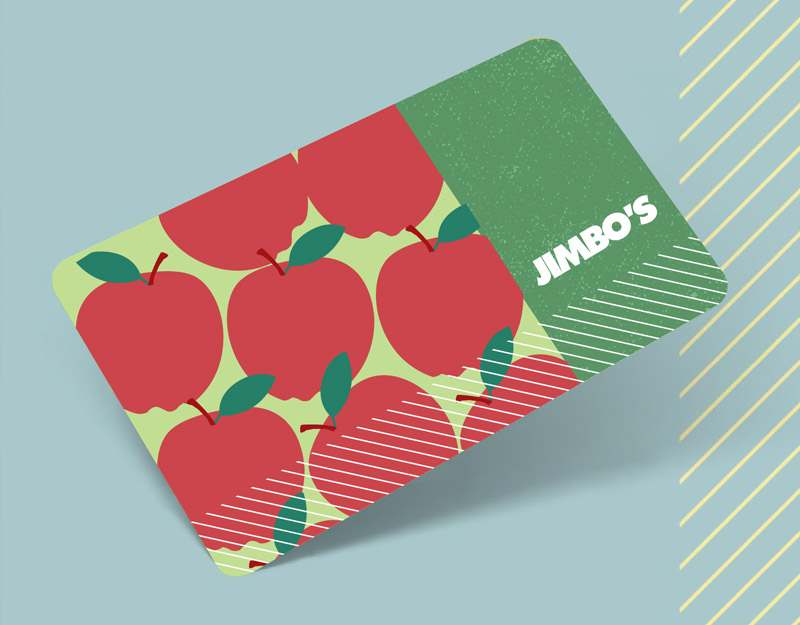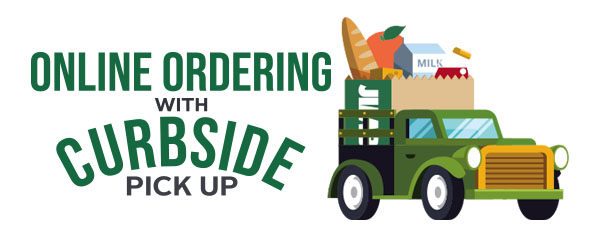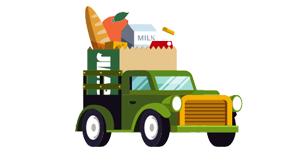Sustainability
Commit • Action • Impact
From our 100% organic produce and bulk departments, to the strict ingredient standards and consistent support of local farms and businesses, a healthy respect for the environment has been built into the ethos at Jimbo’s from the start.
In 2018, we made three commitments with Climate Collaborative to:
Reduce our food waste by 20%
Reduce reliance on plastic packaging
Increase our energy efficiency by 20%
While we recognize we are far from perfect, we strive for progress on our sustainability journey. Being better stewards of the Earth is simply the right thing to do and we invite you to commit, act and make an impact with us!
Reducing food waste
Food does NOT break down in a landfill! It emits methane, a powerful greenhouse gas (GHG). We reduce and reuse our sources of surplus in-house, donate to local food rescue organizations and compost what can’t be eaten.
Every store partners with local food rescue groups to provide more than 60,000 meals to San Diegans in need every year.
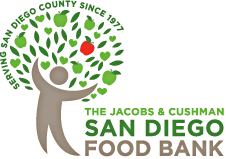

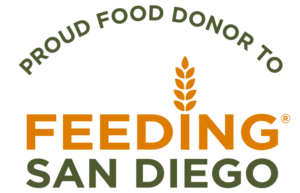
Diverting food from the landfill is a simple way to make a big impact. Composting puts nutrients back into the soil and draws CO2 out of the atmosphere, supporting a healthy food system for future generations.
At Jimbo’s, we compost more than 500 tons of organic waste annually. This equates to taking more than 300 cars* off the road every year.
*This reduction refers to emissions… no effect on rush hour traffic, sorry!
Perfectly delicious, imperfect organic produce is too good to waste! Our team upcycles surplus organic produce into delicious dishes from fruit salad to scones whenever possible.
Reducing Plastic
Only 9% of plastics get recycled. While we support recycling efforts by using recycled materials when possible, we also strive to find the best alternatives to single use plastics.
In 2008, we eliminated the usage of all plastic grocery bags.
BONUS! When customers reuse shopping bags they are offered a nickel for every bag or a wooden nickel for the It’s in the Bag! charity program. Learn more about our Wooden Nickel Program & this quarter’s charitable organizations here.
We are 100% plastic-free in the water aisles in all stores! Hydrate responsibly.
Refilling is fulfilling! Bring your reusable personal water bottle to our Carmel Valley, 4S Ranch & Carlsbad locations and fill up for free.
Our 100% organic produce deserves the 100% home-compostable Non GMO Project Verified produce bags! Biobags turn back into soil in a short couple months and eliminate more than 200 lbs of plastic per week… every year that equates to one Asian Elephant (5 tons) of plastic!
As of 2021, our bulk departments have eliminated non-recyclable plastic bags in favor of certified compostable bags. This bag is made from recycled natural kraft paper and lined with a PLA compostable (ASTM D6400) film. PLA is a plant based renewable polymer. If this bag has a tin tie, please remove it before composting.
Please note: While Biobags are certified compostable right in your home system, our new bulk bags are certified for industrial systems. Remember to reuse and reduce whenever possible!
increasing energy efficiency
Energy production and use accounts for two-thirds of the world’s greenhouse gas emissions. Increasing energy efficiency is a cost-effective way to reduce our environmental footprint.
- We are transitioning to efficient lighting at all stores.
- Covers and doors are on refrigerated displays to conserve energy… close the door on climate change!
“we don’t need a handful of people doing zero waste perfectly, we need millions doing it imperfectly”. – Anne Marie Bonneau, The Zero Waste Chef
FAQ
Hamlet asks “To be, or not to be”… but for fruits and veggies, we ask “Will you wilt or rot?” That is the question (to determine how to keep your produce fresh).
Oftentimes, the best packaging for produce is no packaging at all. The Biobags or paper totes provided in our produce departments are a great option for transport. Whenever possible, REDUCE single use bags altogether and let your produce go naked. We always recommend washing produce (even organic!) before consumption, and there are reusable produce bags for sale in our produce department if you prefer!
Leafy greens and herbs in the ‘wilt’ category need a high humidity environment to stay crisp. Biobags are designed to be breathable and will not hold the moisture these items need. Store delicate produce in a damp cloth in the crisper drawer or bouquet style in a cup of water in the fridge! More tips like this can be found at savethefood.com/storage.
When it comes to packaging, the best option is the one you will use again and again. Regardless of whether it is made of plastic, metal, cotton or corn!
We consider the full life cycle of our packaging choices and strive to strike a balance between practicality and efficacy when considering any ‘ecofriendly’ alternatives. To reduce the impact of any and all packaging: Rethink, Reduce and Reuse as much as possible!
These numbers help recyclers identify the various materials that makes up our packaging.
1 – PETE – Polyethylene Terephthalate- widely recyclable
Material used for soda bottles, water bottles and many common food packages. Often recycled into bottles and polyester fibers.
2 – HDPE – High density Polyethylene- widely recyclable
Mostly used for packaging detergents, bleach, milk containers, hair care products and motor oil. Can be recycled into more bottles or bags.
3 – PVC – Polyvinyl Chloride- difficult to recycle
This stuff is everywhere – pipes, toys, furniture, packaging – you name it. PVC is a major environmental and health threat.
4 – LDPE Low-density Polyethylene – difficult to recycle
Used for many different kinds of wrapping, grocery bags and sandwich bags. Recycling facilities do not always have the tools to process this.
5 – PP – Polypropylene – sometimes recyclable
Clothing, bottles, tubs and ropes. Can be recycled into fibers.
6 – PS – Polystyrene (Styrofoam) – difficult to recycle
Some packaging peanuts, coolers, egg cartons or to-go boxes. Bulky yet very lightweight.
7 – Other – unlikely to be recycled
Sometimes you’ll see #7 plastic with the initials like PC which stands for polycarbonate or the initials PLA for polylactic acid. Some of these PLA items can be composted in your backyard and others must be processed in a (very hot) industrial compost system. Because it encompasses any and all combinations of the above, #7 usually gets landfilled.
Information via Green Matters, Green Living Tips, and Going Zero Waste
You can! Just not at Jimbo’s… yet. Use them to store bulk items like seeds and nuts or make your own smoothies, juices and nut milk to fill them with!
Jimbo’s relationships with local vendors and organic farms supports a healthy economy and environment! Eating local and organic helps us avoid the negative effects of conventional farming and reduce food miles! Food miles refer to the emissions related to transporting food from where it’s grown to where it’s sold.
Year round, Jimbo’s stocks 100% organic produce from farms right here in San Diego County AND the best local vendors for vegan cheese, beer, chocolate and more (but what more do you really need!).
Look for the Support San Diego logo and be part of the solution… Who knew being green could taste sooo good!

